Xi Jinping visit: UK-China ties 'will be lifted to new height'
- Published
China's President Xi Jinping has said he believes his visit will lift UK-China relations to a "new height".
The UK and China were becoming more interdependent and a "community of shared interests," he said on the first full day of his four-day visit.
At a Buckingham Palace banquet, the Queen said this was a "very special year for our bilateral relationship".
The visit comes amid job losses in the UK steel sector, with cheap Chinese imports among factors being blamed.
Tata Steel has announced the latest in a series of cuts, with 1,200 jobs going at its plants in Scunthorpe and Lanarkshire. Prime Minister David Cameron has said he will raise the steel issue in talks with Mr Xi.
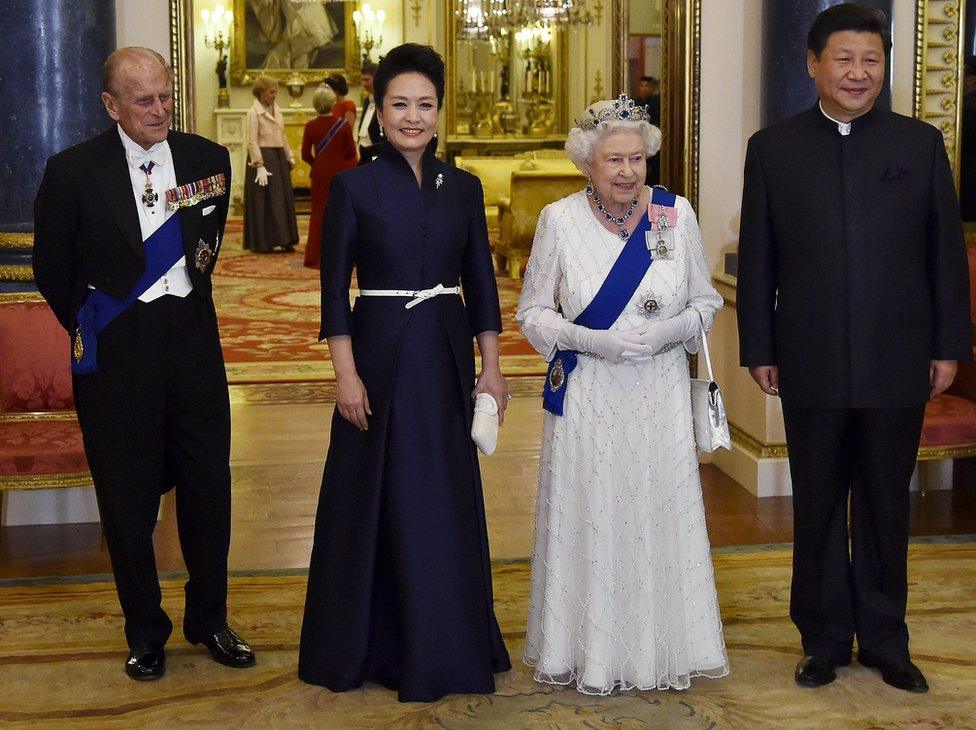
The Queen and Prince Philip alongside the Chinese President Xi Jinping and his wife Peng Liyuan ahead of the state banquet
Addressing peers and MPs in the Royal Gallery at Westminster, the Chinese leader said that, although his visit had just started, he was "deeply impressed by the vitality of China-UK relations".
"Although China and the UK are located at opposite ends of the Eurasian continent, we have a long shared deep mutual affection," he said.
In an 11-minute speech, the president quoted Shakespeare as well as ancient Chinese proverbs, and referenced the involvement of Chinese troops in the Normandy landings in World War Two.
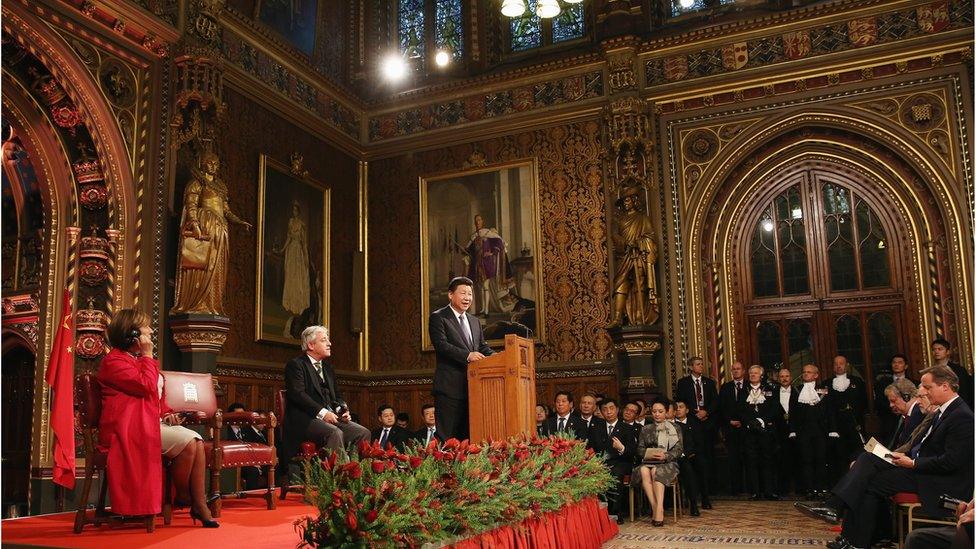
The Chinese leader acknowledged that the UK Parliament was the oldest in the world
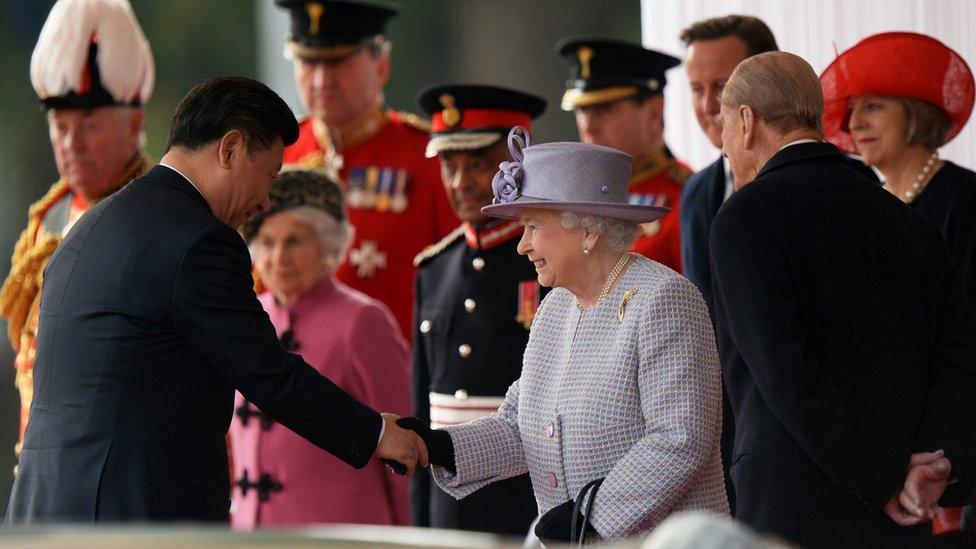
The Queen and the Duke of Edinburgh welcomed Mr Xi as he arrived at Horse Guards Parade
He was introduced by Commons Speaker John Bercow, who praised Myanmar's opposition leader Aung San Suu Kyi and "the innate human right of freedom".
BBC China editor Carrie Gracie said this would be perceived as a "bit of a dig" at China on the issue of human rights.
President Xi and his wife, Peng Liyuan, then travelled to Clarence House to meet the Prince of Wales and the Duchess of Cornwall for tea.
He later met the Duke of Cambridge at Buckingham Palace, ahead of the state banquet.
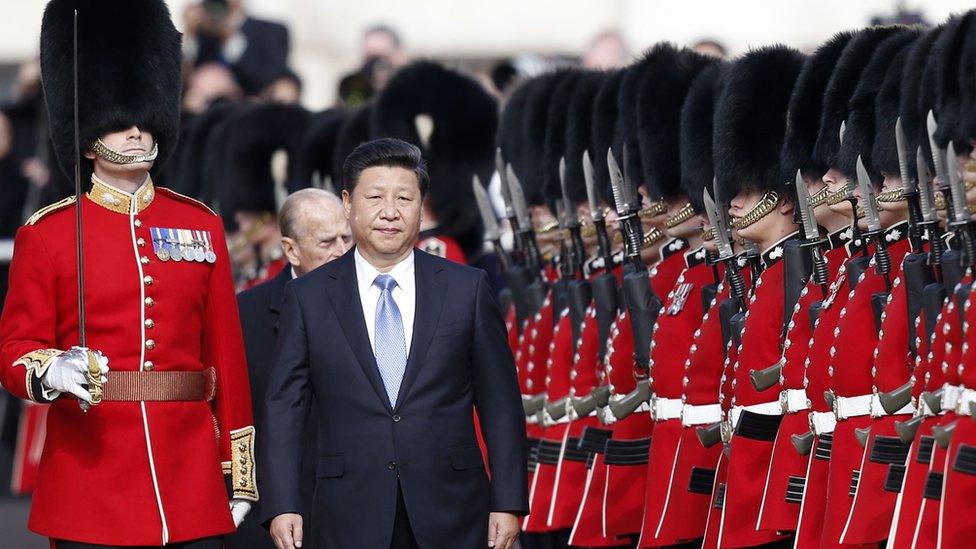
Mr Xi was given a guard of honour during the reception at Horse Guards Parade
At the banquet, the Queen hailed the "milestone" visit of President Xi and declared Anglo-Chinese ties were being taken to "ambitious new heights".
She praised the country's rapid development which had lifted "hundreds of millions out of poverty", and said the relationship between the UK and China was now a "truly global partnership".
Earlier, President Xi was welcomed by the Queen, the Duke of Edinburgh and Mr Cameron during the ceremony in Horse Guards Parade, while a 41-gun salute was held in nearby Green Park.
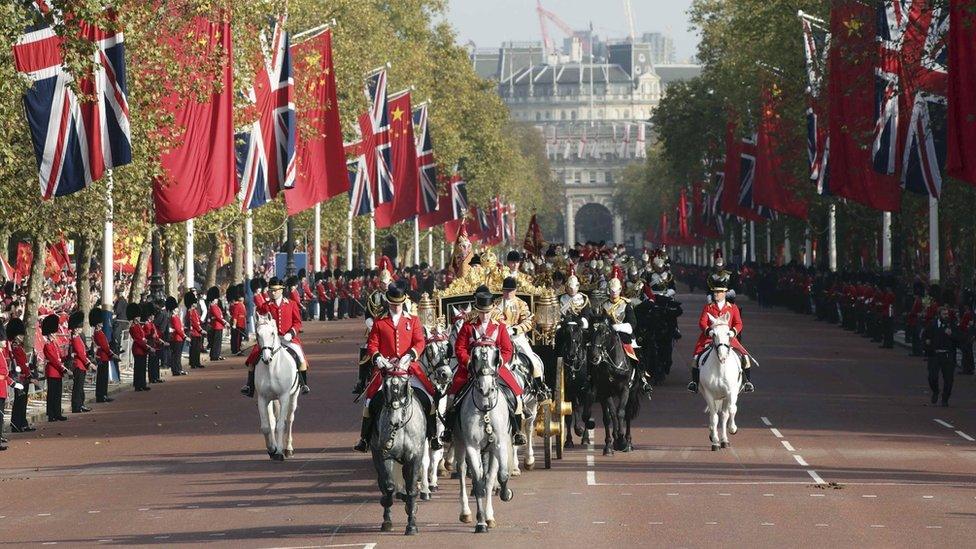
The Queen and China's President Xi Jinping were driven by carriage along The Mall to Buckingham Palace
He then took part in a carriage procession along The Mall, as he headed to Buckingham Palace for lunch with the Queen.
Mr Xi also held talks with Mr Corbyn and Labour said their leader raised a number of issues, including human rights and steel during a "cordial and constructive" meeting.
President Xi Jinping: ''We are in an age of pursuing peace and development''
Protests have been held on The Mall and outside Parliament by members of the Anti-China Free Tibet group and the human rights group Amnesty International.
Crowds of anti-China protesters and pro-China supporters also gathered in front of Buckingham Palace.

Analysis
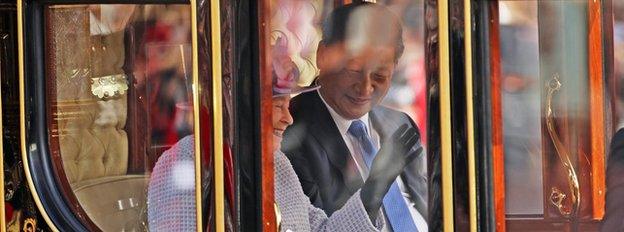
By Carrie Gracie, BBC China editor
From the point of view of the Communist Party leadership, it's imperative that the visit goes off without a hitch.
The government's reputation for competence was undermined over the summer by the stock market meltdown, growing questions over economic growth and the Tianjin warehouse explosions.
The party needs President Xi to be shown respect internationally in order to bolster its own popularity and power at home.
Chinese state media have effused about "the reddest of red carpets" and a new golden era of "win-win results" between China and the UK.
In general the public is supportive of President Xi, thanks to his campaign against corruption and his carefully-crafted "man of the people" image. They too want to see their leader, and his glamorous celebrity wife, shown respect on the world stage.
But there is also a fascination among the emerging middle classes of China for things British, including royalty, contemporary music, fashion and TV drama.

Ministers expect more than £30bn of trade and investment deals to be struck during the four-day visit.
The Treasury hopes that within 10 years China will be Britain's second biggest trading partner.
However, critics have accused the government of "kowtowing" to Beijing.
"If you act like a panting puppy, the object of your attention is going to think they have got you on a leash," James McGregor, chairman of consultancy group APCO Worldwide's Chinese operations, said.

At the scene
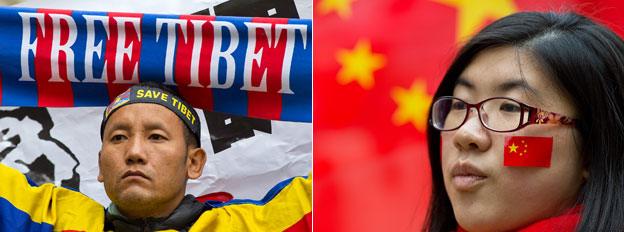
By Ben Geoghegan, BBC news correspondent
President Xi's supporters vastly outnumber the human rights protesters. So why the repeated attempts to block the protesters' banners and upstage them?
On several occasions, I've seen huge Chinese flags "strategically moved" so that they obscured signs and placards being held up by Amnesty International, Falun Gong or the Free Tibet movement.
When I was interviewing two female students a man appeared and told them to move to a different position because there was an anti-Xi message behind them.
My camera crew found the Chinese flag repeatedly being waved in front of the lens when they tried to film protesters.
The pro-China flags are bigger, their drums are louder. Some of President Xi's supporters seem determined to make sure their opponents aren't seen or heard.

Foreign Secretary Philip Hammond denied the government was being naive, saying it was "very much in our national interest to engage with China".
"I think we are developing a mature relationship with the Chinese," he said.
"They know that we are looking not just to China but to many other countries for infrastructure investment in the UK."
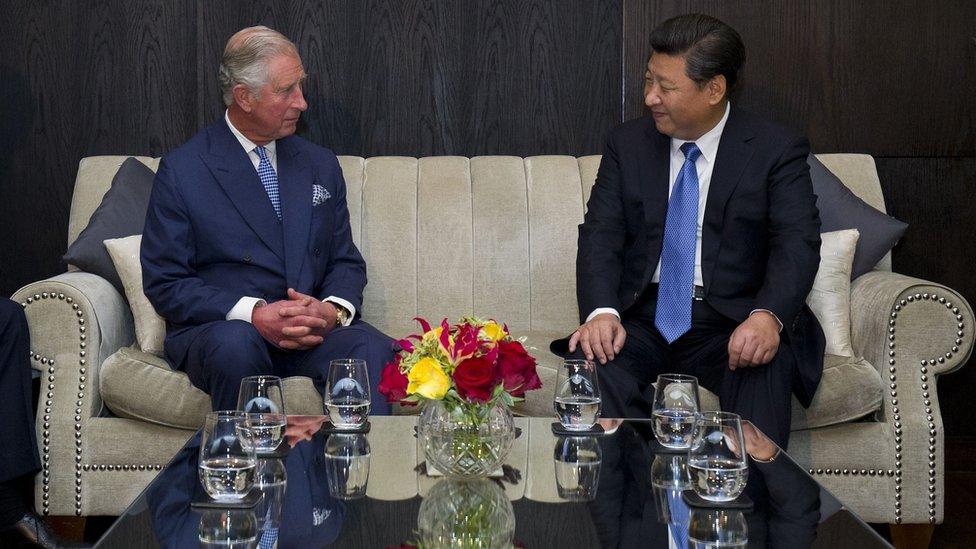
Earlier, Prince Charles greeted the Chinese president at a hotel in central London
The trip has been hailed by officials from both countries as the start of a "golden era" of relations.
Chinese companies are to be allowed to take a stake in British nuclear power plants, and a trip by Mr Xi and Mr Cameron to Manchester later in the week is expected to see the announcement of further investment in the so-called "Northern Powerhouse" project.
But the visit comes after China's economy grew by 6.9% in the third quarter, the weakest rate since the global financial crisis.

China and the UK
China-UK relations - in two minutes
China and 'the Osborne Doctrine' - BBC China editor Carrie Gracie asks whether the UK's shift in policy will pay off
How China guards the Xi creation myth - Visiting the cave where the young Mr Xi lived

In the customary exchange of gifts during a state visit, the Queen gave the Chinese president a collection of Shakespeare's sonnets and the monarch received two of his wife's folk albums in return.
Xi Jinping is said to be a fan of the Bard, while his wife Madame Peng is a celebrated singer in her home country.

China state visit: At a glance
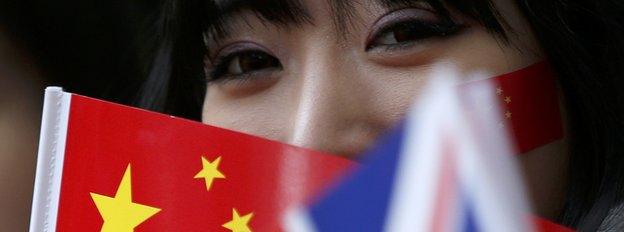
Wednesday
Imperial College London visit
Meeting with David Cameron at Downing Street
Thursday
Visit global satellite communication services company
Dinner at Chequers
Friday
University of Manchester visit
Event at Manchester Airport before departure
- Published20 October 2015
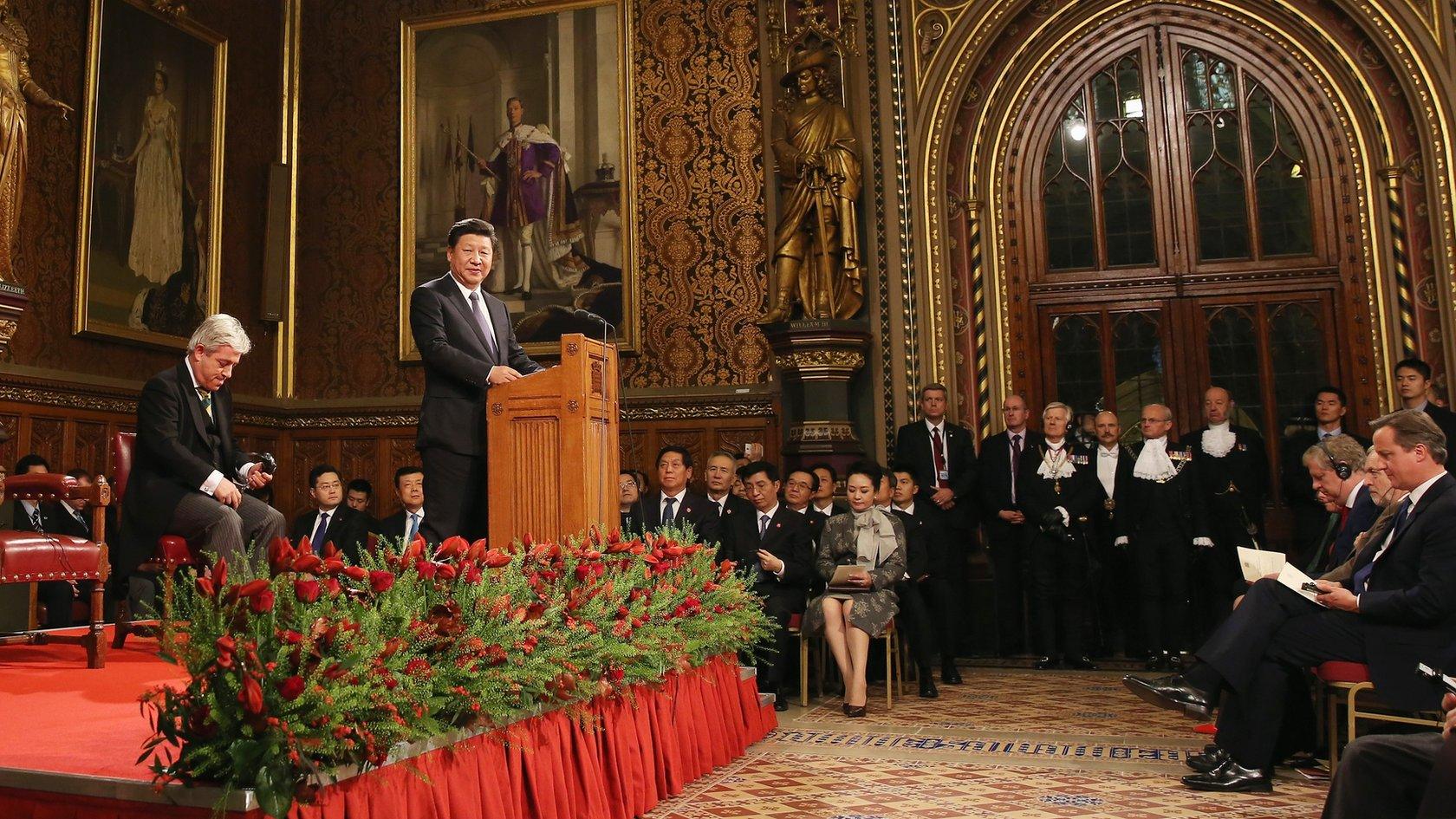
- Published20 October 2015
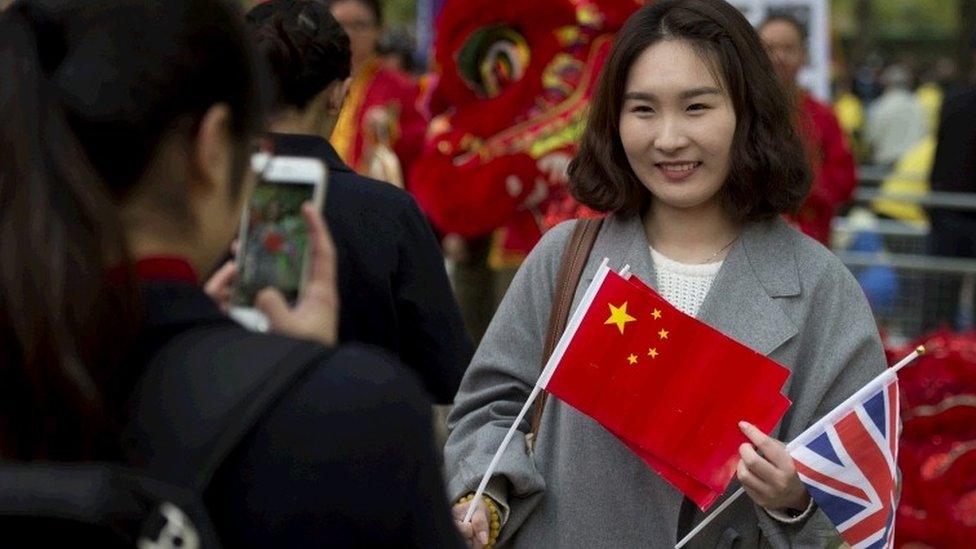
- Published20 October 2015
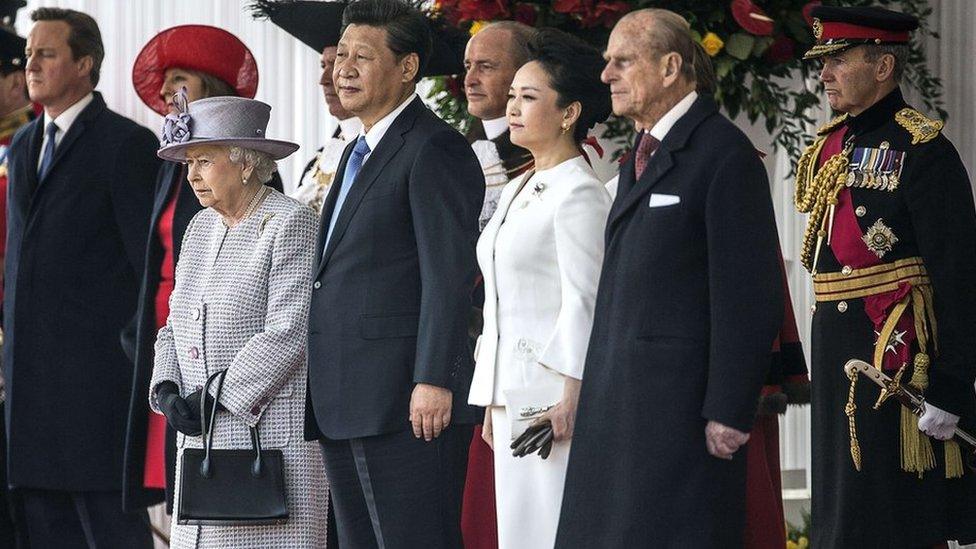
- Published19 October 2015
- Published20 October 2015
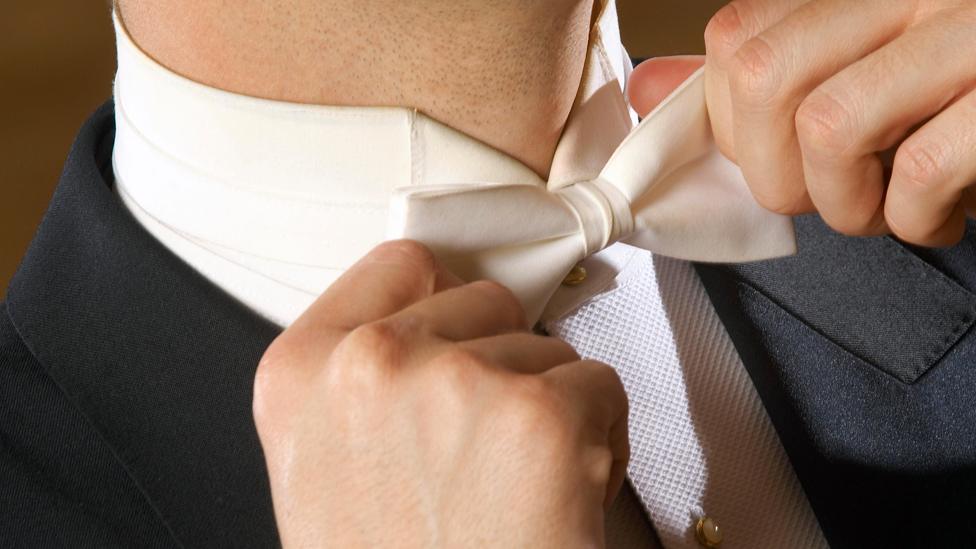
- Published22 October 2015
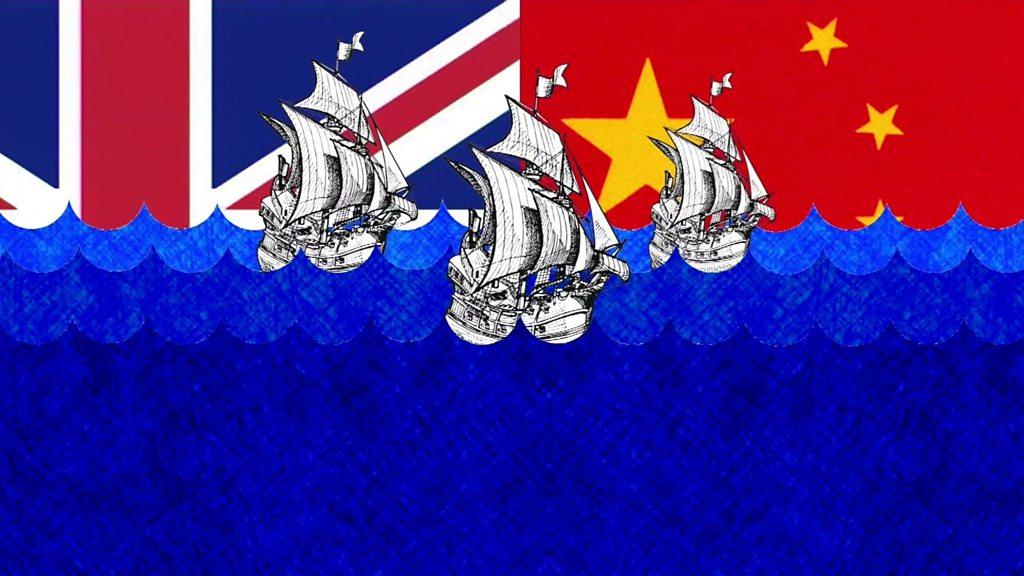
- Published19 October 2015
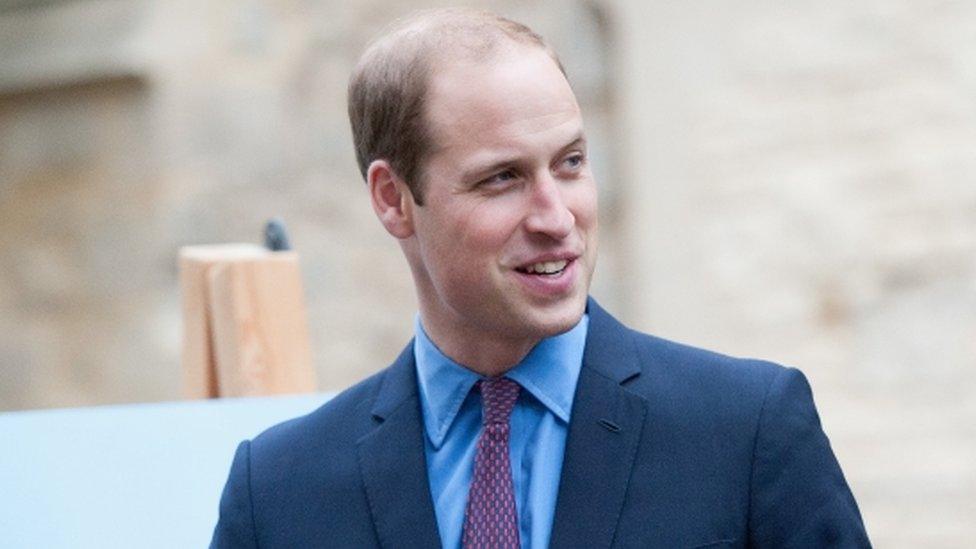
- Published19 October 2015
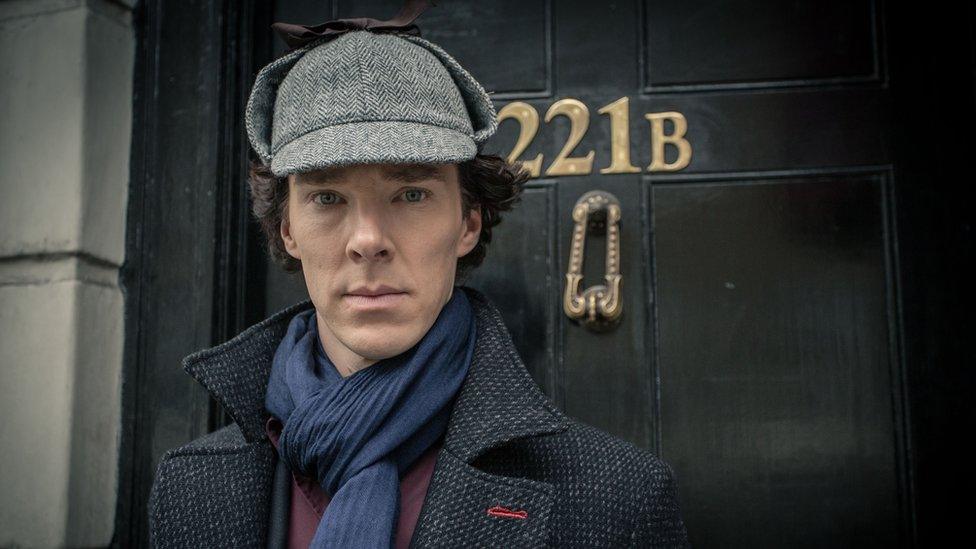
- Published18 October 2015